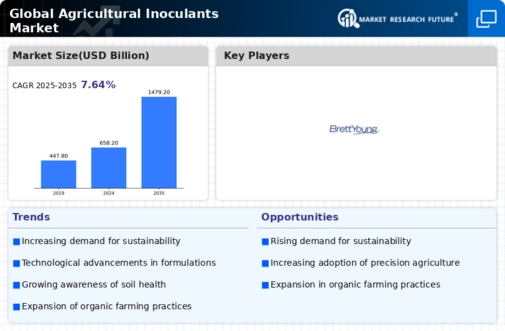By Region, the study provides market insights into North America, Europe, Asia-Pacific, and the Rest of the World. The North American agricultural inoculants market accounted for USD 0.37 billion in 2022 and is likely to exhibit a significant CAGR growth over the study period. Farmers are adopting new technologies to increase soil productivity and crop yield due to shrinking agricultural growth and public settlements. The US dominates the agricultural inoculants market due to its extensive arable land and cutting-edge farming techniques. Farmers prefer organic agricultural practices to maintain soil fertility and crop yield.
This has increased the demand for and consumption of agricultural inoculants in this region. The major companies with a significant presence in North America are ADM animal nutrition, Agri King, Cargill, Hansen Holding AS, and Corteva Agriscience.
Further, the major countries studied in the market report are the U.S., Germany, Canada, France, the UK, Spain, Italy, Japan, India, Australia, China, South Korea, and Brazil.
Figure 2: AGRICULTURAL INOCULANTS MARKET SHARE BY REGION 2022 (%)
The European agricultural inoculants market accounts for the second-largest market share. Corn, soybean, and canola cultivation in the United Kingdom and Germany is expected to accelerate the growth of agricultural inoculants in the European region. Additionally, the quicker uptake of new technologies to boost crop productivity while reducing its detrimental environmental effects will support regional agricultural inoculants market expansion. Microbes are widely used as biofertilizers and biocontrol agents in countries such as Spain, Italy, and France.
Further, the German agricultural inoculants market held the largest market share, and the UK agricultural inoculants market was the fastest-growing market in the European region.
The Asia-Pacific Agricultural Inoculants Market is expected to grow at the fastest CAGR from 2022 to 2030. The growth of the Asia Pacific inoculants market can be attributed primarily to the large area under organic agriculture, particularly in countries such as Australia, China, and India. Factors such as the widespread adoption of advanced crop-quality-improving technologies increased organic farming implementation, and rising demand for high-quality crops drive regional market growth. In addition, the large area under rice cultivation necessitates using biofertilizers for nitrogen fixation and biocontrol microbial for fruit and vegetable cultivation.
The high utilization of agricultural inoculants for soybean production and the presence of largely agricultural land drive revenue growth in this region. Moreover, China’s agricultural inoculants market held the largest market share, and the Indian agricultural inoculants market was the fastest-growing market in the Asia-Pacific region.











